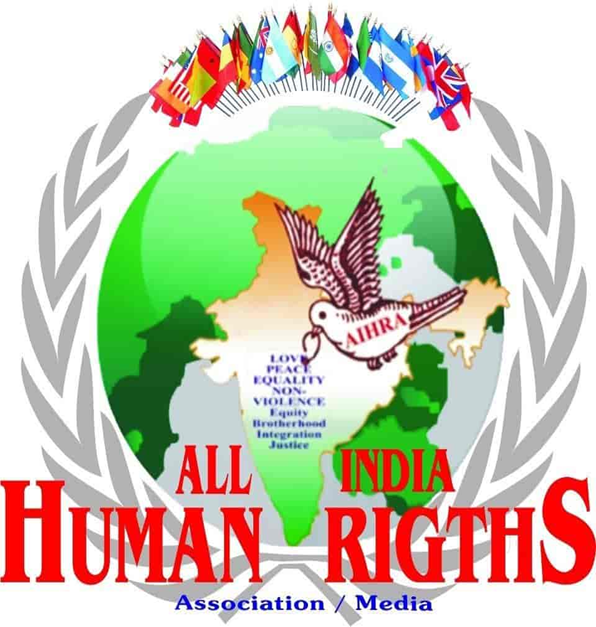Cybercrime And Privacy Framework In Accordance with Human Rights
Cybercrime And Privacy Framework In
Accordance with Human Rights
Written and edited by: YASH JAIN
5th Year B.B.A.LL.B. (Hons.)
Amity Law School, Noida
Cyberlaw is all of the
rules and regulations that help protect against cybercrime, including
networking, software development, data storage devices, access to Internet, web
sites, e-mail, automated teller machines, etc.
In illegal actions, as
when a computer is being used as a tool for the violation of the clause that is
dependent on cybercrime in the appearance, such as the ones mentioned above,
such actions may be considered as a cybercrime. Computer crime a threat to
people and structures, as well as the economic security of information in the
country. On a global scale, nation-States, and non-state entities to engage in
crimes that cross borders. Crimes, such as fraud, cyber-terrorism, cyber
extortion, and cyber-sex trafficking in human beings are to be made all over
the world, and so it went on.
It is primarily concerned
with:
- Ø Intellectual
property rights
- Ø Data
protection and privacy
- Ø Electronic or digital signatures
International Statues for Cyberlaws
The international covenant on Civil
and Political Rights (ICCPR)
The Budapest Convention
The Council of Europe has
been the entry into force of the treaties, i.e., the Budapest Convention on the
fight against cybercrime, in order to provide solutions to any problems that
may arise in connection with the development of the digital platform. This
treaty is the international agreement.
The structure of the cyber law, human
rights perspective
The Information
Technology Act, 2000 was enacted and amended in 2008, and was based on the
model of the United Nations Commission on International Trade Law (UNCITRAL).
The Information Technology Act, defines crimes, and the penalties for the
various classifications of the world, and so are cyber rights act as a defense
against cybercrime. In addition to the aforementioned Law, the Government is
developing a National cyber security, Policy.
For the protection of
human rights and cyberspace,
In the new era of the
digital world, human rights are being violated openly and on a large scale.
Article 19 of the Universal Declaration of the Rights of Man (UDHR) is a device
for the information society, which states that everyone needs to have access to
the benefits of the information society.
The United Nations
Commission on Human Rights (UNHCR), in a general comment, said that the freedom
of expression and information are set out in the international covenant on
Civil and Political Rights, also need to be able to send, receive, and transmit
information, thoughts and ideas over the Internet (cyberspace).
Freedom of speech and expression, and cyberspace
- Any reasonable claim, or the law.
- The mandatory limit for national security, and the moral purposes.
- Social morality.
- Your reputation will suffer, and so on
Internet censorship
The Indian media has
reported on many of the problems associated with the misuse of the Internet in
different ways, and how it is used, and the protection of human rights.
Internet censorship includes a prohibition against child pornography, and the
removal of defamatory or hateful content on social media platforms, on the
right, and the control of all of the issues of bullying, discrimination, and
sexual harassment in the wild, such as bullying, cybersexism, or sexual
harassment, cybergomophobia, etc., etc.
India's position on the
Law on Protection of personal data
Privacy
The main purpose of the
Law on Protection of personal data is to maintain a balance between a person's
rights to privacy and the interests of the data collector. Privacy is a
fundamental human right as stated in many international human rights
instruments. The main idea is to improve the protection of human dignity, which
is the freedom of expression and information.
National privacy law
The Indian Constitution
does not specifically mention the right to privacy, the Supreme Court has
interpreted the right to privacy under article 21, i.e., the right to life and
liberty, with the expansion of the range.
Case of K.S
Puttaswamy v. Union of India 2015
In this case, the
interpretation of the right to privacy has been questioned, and in 2017, it was
stated, that one's privacy is a fundamental element of the human dignity of the
Constitution and not to any institution or body may be able to influence it, unless
it is provided for by law.
In the case of Maneka
Gandhi v. The union of India, 1975
In this case, we are
talking about a “reasonable restriction”, the law may restrict the right to
privacy, but it needs to be fairly and accurately in accordance with article
19, paragraph 2, of the Constitution.
Data Protection
The Protection of your
data (in the scope of the application in India in our digital era, privacy
policy applies to all personal information that includes YOUR Aadhar records, medical
records, etc., etc. There is no law in India that is dealing with the same
level of data protection and privacy rights. Section 43A of the Act,
since the year 2000, a number of the "privacy Policy").
There are relevant laws,
such as the Information Technology Act, 2000 and the Indian Treaties,
acts of 1872. India is currently working on a framework of data protection
law, you have a group of experts are already working on it, and some of the
privacy laws may be affected by the General data protection Regulation (GDPR),
which have been made in Europe to protect the digital account.
Conclusion
At present, there are a
variety of new ways for people to get to work, and that their rights are being
violated, all development of the society. A new interpretation of the rights of
man are introduced for new generations on the basis of the needs and demands of
the society. In the virtual world, the Internet has no boundaries, and it is
used internationally.
References
·
https://www.ohchr.org/en/aboutus/pages/developmentintheeconomicsphere.aspx
·
https://www.hrw.org/world-report/2019/country-chapters/united-states






Comments
Post a Comment